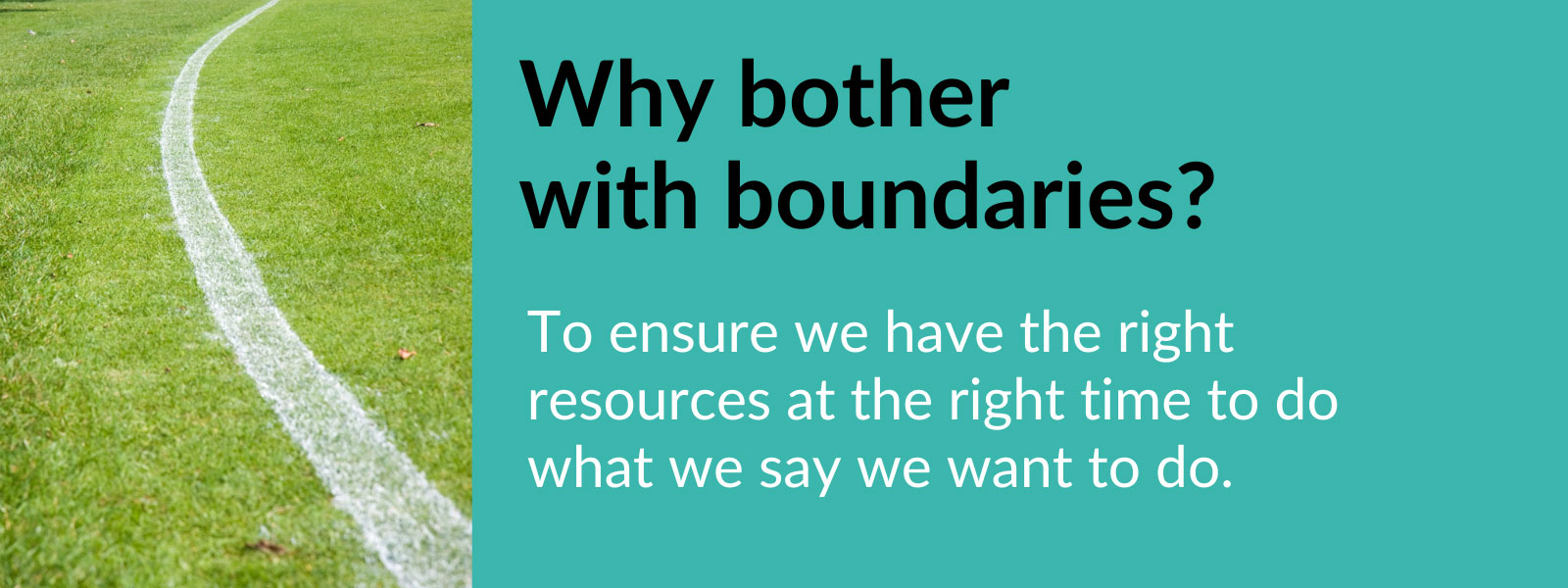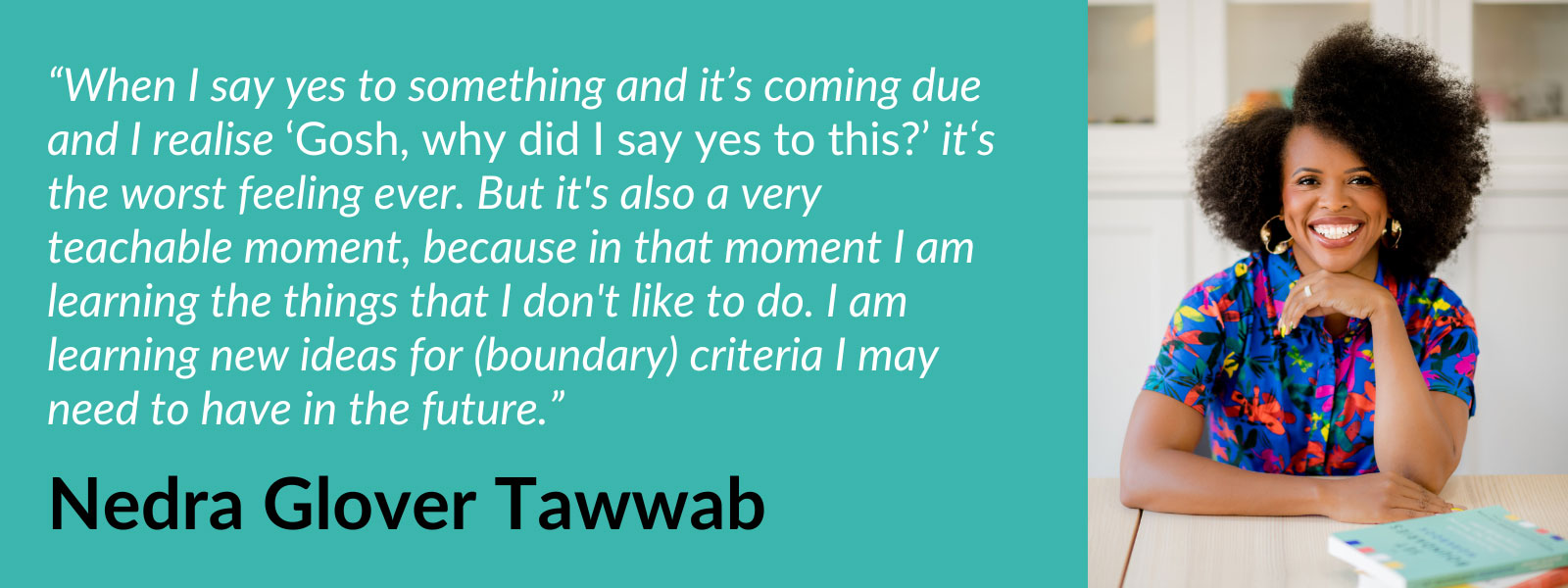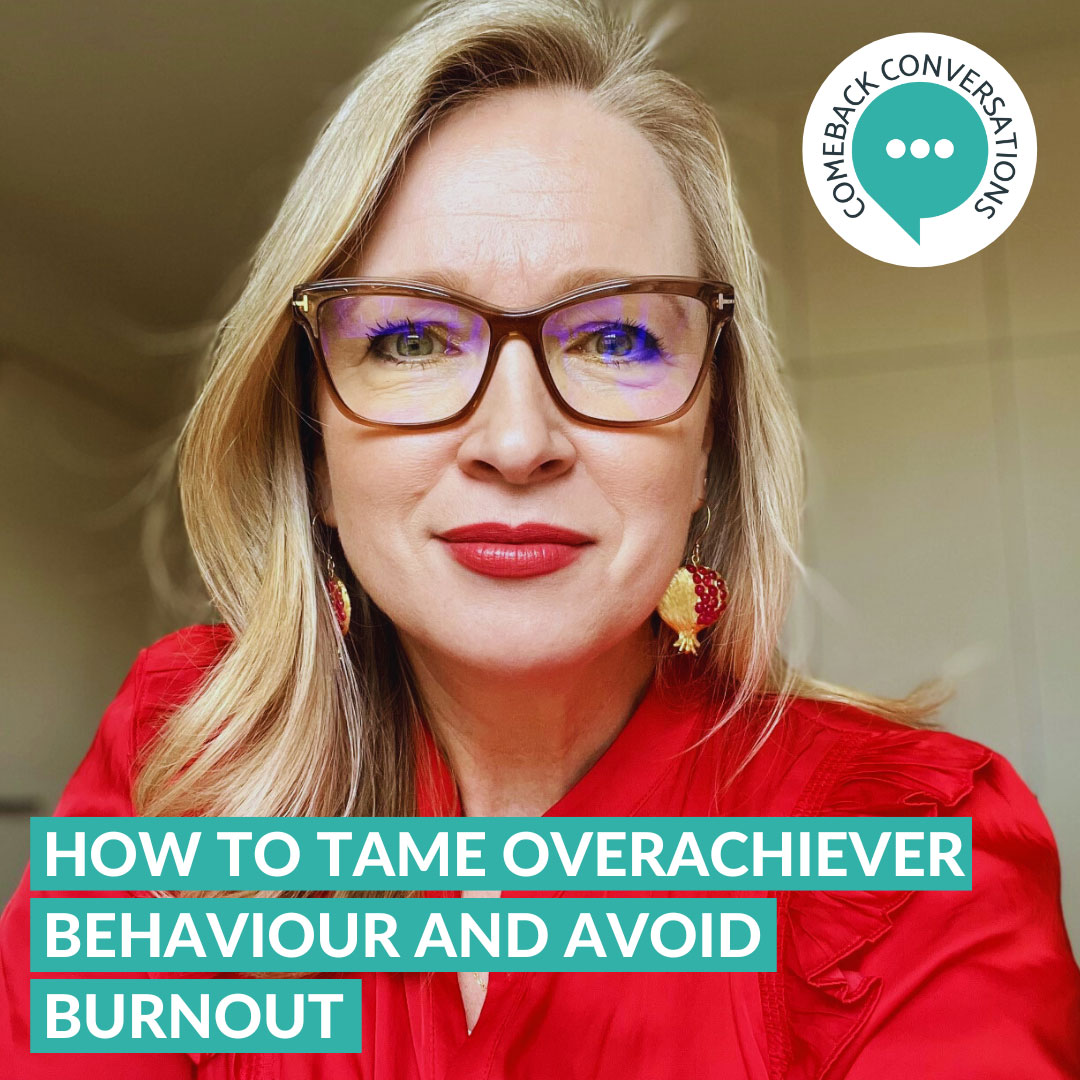Blog
Boundaries – What, When, Why?
I was reminded last month how much easier it is to hold your boundaries if you’ve been explicit about them, say with a contract. I’m not sure you want to hear the details of the particular client story from which this reminder came or the inner mental tussle I had going on. Suffice to say I held our boundary and it felt good; and the outcome for all concerned was good too. It was remembering we had a contract in place that suddenly made it an easy decision on what to do.
Why should we have boundaries?
To ensure we have the right resources at the right time to do what we say we want to do.
I can’t pack my Tuesdays with coaching sessions until 6pm if I want to be at the kitchen for an early dinner listening attentively to my youngest before driving her to netball training. I wouldn’t have the mental bandwidth to feign interest let alone genuinely engage with what she’s saying, or even be able to be physically present at 5pm if I’m scheduled to be elsewhere until 6pm.
Should we tell other people about our boundaries?
It depends. “Does the boundary affect them?” is a question to ask yourself to help you decide. Here’s a boundary I keep for myself that no one else currently needs to know: on Monday mornings I keep my phone on airline mode whilst I do “deep work” between 8.30 and 11am. I don’t answer the phone, reply to e-mails or get involved in whatsapp chat. The boundary allows me time and space to create something that needs uninterrupted concentration (usually newsletter content or a client proposal).
If clients were to keep bumping up against this boundary by asking for rapid replies to e-mails or meetings with me in this 2.5 hour slot I’d let them know why they can’t reach me and when we can talk instead.
Sometimes it’s better to be upfront about a boundary and not wait for someone to touch it. It can save embarrassment, remove guesswork and make things easier all round. A friend of mine says guests are welcome to stay for up to three days. She lives in a beautiful part of the world and many people like to visit her which is why she’s let it be known in the loveliest way that, like fish, house guests go off after 72 hours. I love her for this.
What’s a good boundary?
One that makes you feel good because it helps you live in tune with your values, be the person you want to be or have the energy/time/focus/other significant resource to get on with the things you say you want to do.
What are the most important boundaries?
The boundaries you have chosen that prevent you from having to make difficult decisions in the moment when two or more of your most precious values or tightly held desires come into contact.
I imagine many people will nod along to this example of a boundary that helps ease the almost constant potential tension between work and home:
Imagine you are someone who prides herself on doing an excellent job at works, wants colleagues to know how committed you are and who enjoys helping others. You are also someone who cares deeply for your family and believes being home for mid-week dinners is important. It’s 5.07pm, your train leaves at 5.21pm, it’s a 10 minute walk to the station and a colleague who rarely asks for your help has done exactly that (for a project you care about).
Having a “I leave the office by 5.05pm on Mondays, Wednesdays and Fridays” boundary and communicating that to people who are most likely to want you after 5.05pm could be a smart move.
So how should you respond when someone bumps up against your boundary?
Generously. In the example above that colleague might not know that you leave by 5.05pm or they may have forgotten or they might not actually care in that moment.
In my experience a good response is one that both respects your boundary and maintains or improves the state of the relationship: “I’m flattered and really happy to help. Could you call me on my mobile in my 10 minutes when I’ll be on the train and all ears”.
Should you ever let boundaries go?
Boundaries can become irrelevant or need to be tweaked according to the changes in your resources and the demands on them. One boundary I used to hold tightly was never working if both children were in the house and I was the only adult. Now that they’re 17 and 15 and stay out of each other’s way, there’s no reason for the boundary (which was to prevent me from being distracted and not spotting tensions rising between the two of them…arguments ensuing and then me responding like a startled cobra and bollo*king them both in a totally over the top way).
But what if you really need to flex a boundary?
Go right ahead and see what happens. If all’s well you might not have needed it in the first place. If you flex it and things go sour you’ve learned something about its importance to you. As New York Times bestselling author and therapist Nedra Glover Tawwab says: “When I say yes to something and it’s coming due and I realise ‘Gosh, why did I say yes to this?’ It is the worst feeling ever. But it’s also a very teachable moment, because in that moment I am learning the things that I don’t like to do. I am learning new ideas for (boundary) criteria I may need to have in the future.”
How do you know what your boundaries should be?
Strong negative feelings can be a good guide to what boundaries might be helpful for you. The next time you feel irritated, cross, sad, worried or frustrated ask yourself “What’s the root of this feeling? What do I believe should be happening in this situation? Is there a boundary that could have helped?”
How can you give yourself the best possible chance of holding a particular boundary?
Remember how you felt the last time you crossed it.







